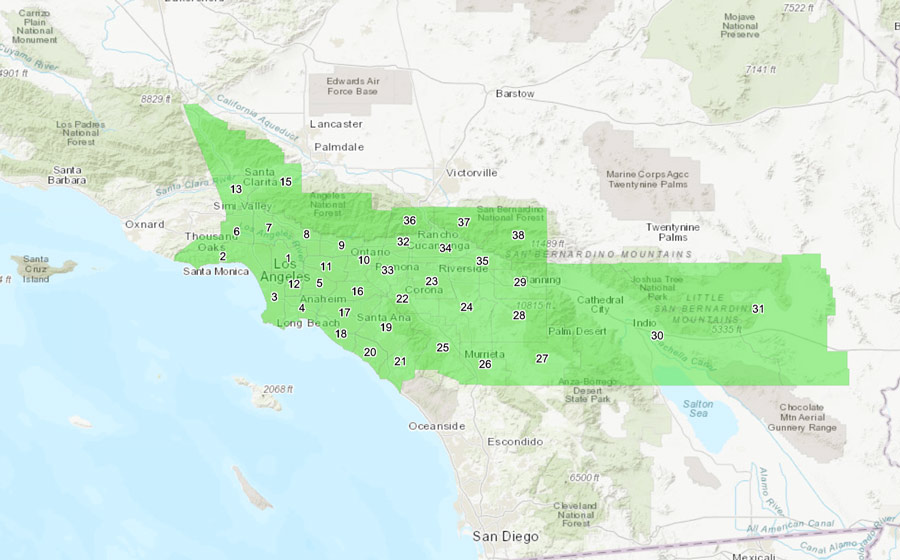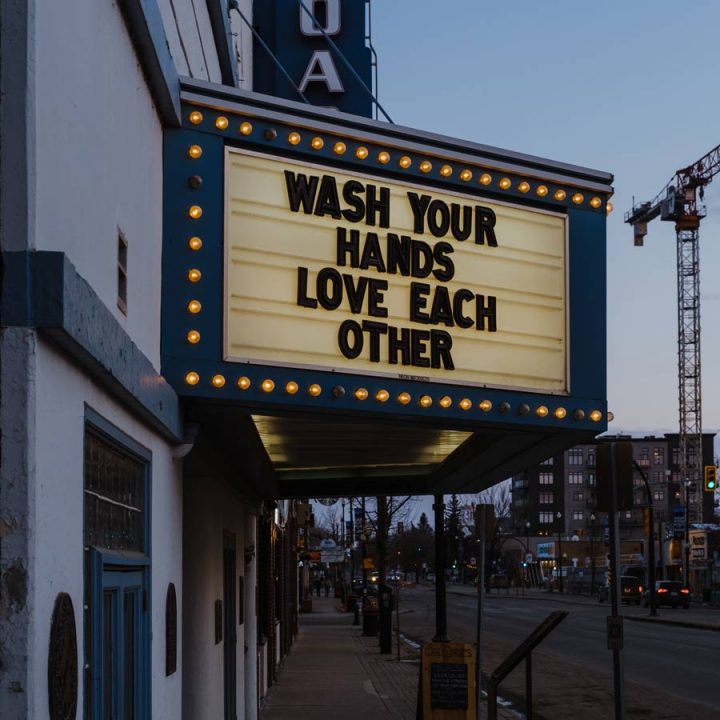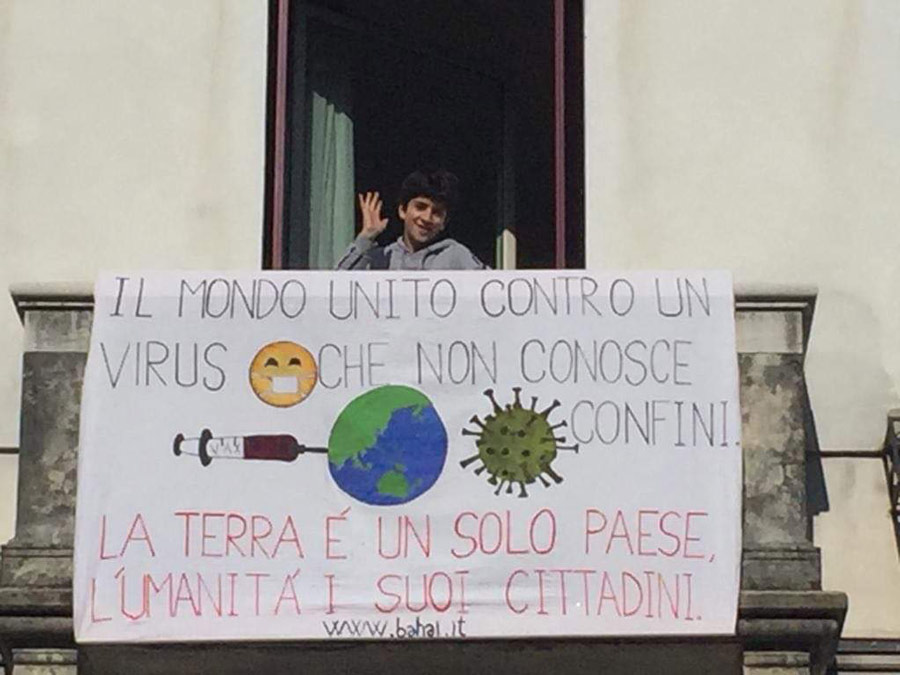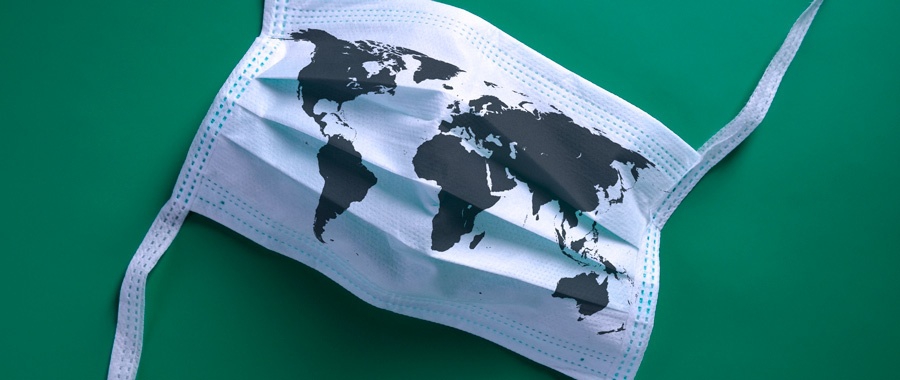The views expressed in our content reflect individual perspectives and do not represent the authoritative views of the Baha'i Faith.
Toilet paper is hard to find, canned, and frozen foods have disappeared from grocery store shelves, and the streets are deserted as the coronavirus incites a panic across the globe. People are hoarding and panicking, allowing paranoia to drive them.
Of course, protecting yourself from the disease is essential, but I’m doing my best not to act out of fear but out of faith. The Baha’i writings say:
Let not fear fall upon you, neither be troubled nor dismayed. Take ye good heed lest this calamitous day slacken the flames of your ardour, and quench your tender hopes. Today is the day for steadfastness and constancy. Blessed are they that stand firm and immovable as the rock and brave the storm and stress of this tempestuous hour. They, verily, shall be the recipients of God’s grace; they, verily, shall receive His divine assistance, and shall be truly victorious. – Abdu’l-Baha, Selections from the Writings of Abdu’l-Baha
In order to not let this pandemic make me feel hopeless, I’m focusing on what positive changes are being made and what lights are at the end of this tunnel. From seeing that cleaner air and water are possible to the benefits of personal hygiene, here are four lessons we’re learning from this catastrophe.
1. We Have the Power the Stop Climate Change
Baha’is agree with scientists that addressing climate change is one of humanity’s most crucial problems. In 2017, the Universal House of Justice, the global governing body of the Baha’i Faith, wrote:
One of the most pressing problems of humanity in the current century is how a growing, rapidly developing, and not yet united global population can, in a just manner, live in harmony with the planet and its finite resources. Certain biological realities present themselves when an organism negatively affects or exceeds the capacity of its ecosystem. – In a November 29, 2017 letter from the Universal House of Justice
Our environment has been deteriorating because of our inability to be sustainable and conserve the earth’s resources. Spending more time indoors due to quarantine restrictions — and less time traveling by car, boat, or plane — has a positive effect on our environment. As a result of less pollution due to the lack of tourists and traffic, the Venice canals in Italy, for instance, have become clear enough to see the fish at the bottom.

China has also had a significant reduction in greenhouse gases — including a roughly 25% decrease in carbon dioxide emissions and a 30% drop in nitrogen dioxide levels — due to the decrease in travel and factory production. Air pollution is linked to respiratory problems, asthma, and heart attacks, and causes 1 million premature deaths in China every year. Even a short-term reduction in greenhouse gases may make a difference and save lives.
Lauri Myllyvirta, the lead analyst at the Centre for Research on Energy and Clean Air, told NPR, “I’ve definitely spoken to people in Shanghai who said that it’s been some of the most pristine blue skies that they remember over the winter.”
2. People Are Now Washing Their Hands
I’ve seen so many posts on social media about how the lines in men’s bathrooms are now long because more men are actually washing their hands after they use the restroom. While I am happy that more people are practicing good hygiene to protect themselves from the virus, I’m a bit disturbed that this wasn’t already a habit.
The Baha’i writings say that cleanliness is important for humanity’s progress:
Cleanliness and sanctity, purity and delicacy exalt humanity and make the contingent beings progress…External cleanliness, although it is but a physical thing, hath a great influence upon spirituality. – Abdu’l-Baha, Baha’i World Faith

While 92% of Americans believe it’s important to wash their hands after using the bathroom, only 66% of Americans say they actually do and only 5% of people wash their hands properly. In order to kill off the infectious germs on our hands, the U.S. Centers for Disease Control and Prevention recommends that we wash our hands vigorously with soap and water for at least 20 seconds.
The coronavirus isn’t the only illness that can be prevented by washing your hands properly. Washing your hands well can also help prevent the spread of the norovirus, influenza, pink eye, staph infections, strep throat, and the common cold, to name just a few. So while hand sanitizers are convenient when you’re on the go, a vigorous hand-washing should be done frequently, regardless of whether there is a pandemic.
3. People Need Universal Health Care
Experts are concerned that Americans won’t seek out healthcare because of the high uninsured rate and out-of-pocket costs. Research has shown that patients in the U.S. “are much more likely than those in most other countries to say they had a cost-related barrier to getting medical care: 33 percent in America vs. between 7 percent (Germany) and 22 percent (Switzerland) in other developed economies,” reports Vox.
Baha’is view healthcare as a service to humanity. The Baha’i Writings say:
This is worship: to serve mankind and to minister to the needs of the people. Service is prayer. A physician ministering to the sick, gently, tenderly, free from prejudice and believing in the solidarity of the human race, he is giving praise. – Abdu’l-Baha, Paris Talks
“The U.S. performs worse than average among similarly large and wealthy countries across nearly all measures of preparedness for a pandemic,” Cynthia Cox, the director of the Peterson-Kaiser Health System Tracker told Vox. “The coronavirus outbreak is already exposing inefficiencies and inequities in our health system, and it is likely to put much more strain on the system in the coming weeks.”
4. Social Distancing Does Not Have to Mean Social Estrangement
It’s difficult to no longer be able to go to the movies, eat out at restaurants, or attend large events like we used to before being quarantined. However, social distancing does not have to equal estrangement. The Baha’i writings say:
The stronger the ties of fellowship and solidarity amongst men, the greater will be the power of constructiveness and accomplishment in all the planes of human activity. – Abdu’l-Baha, The Promulgation of Universal Peace
It’s exciting that people are now coming up with creative ways to virtually bond and have fellowship with their friends and loved ones. Friends of mine are hosting virtual prayer gatherings, while others are having online parties via social media. Baha’is are also building community by teaching children’s moral education classes online. No matter where we go or how we feel, this can serve as a reminder that we can always find a way to stay connected.

Baha’is believe that humanity will ultimately pass through this crisis and emerge with more insights and appreciation of our oneness and interdependence. In a March 2020 letter to the Baha’is of the world, The Universal House of Justice, the global governing body of the Baha’i Faith, wrote:
However difficult matters are at present, and however close to the limits of their endurance some sections of societies are brought, humanity will ultimately pass through this ordeal, and it will emerge on the other side with greater insight and with a deeper appreciation of its inherent oneness and interdependence. – In a March 2020 letter to the Baha’is of the world from the Universal House of Justice
This pandemic shows us that the barriers to progress we’ve had are man-made constructs. We didn’t ask for this test, but it’s enabling us to see that change really is possible.
You May Also Like
Comments

















Let me just add two additional points:
1. Access to clean water should also be a human right. There are some social groups (mostly nomadic) in Europe who still don’t have access to clean water. Without clean water, they can’t wash their hands.
2. Care for elderly. Many nursing homes in southern Europe are almost like warehouses filled with elderly people. These became an arena of infections with many dying of Covid-19. Living with dignity until the end of our days should also be a human right.